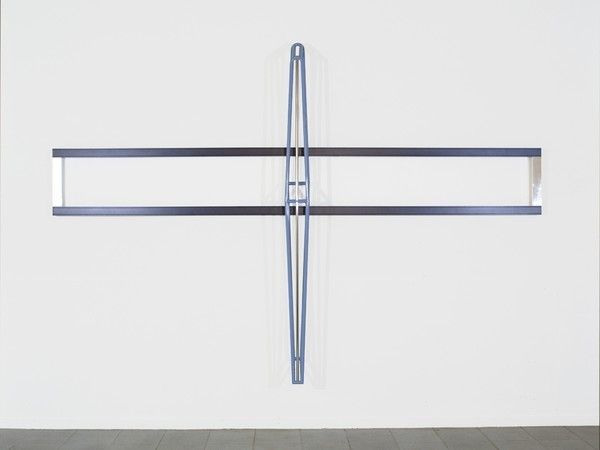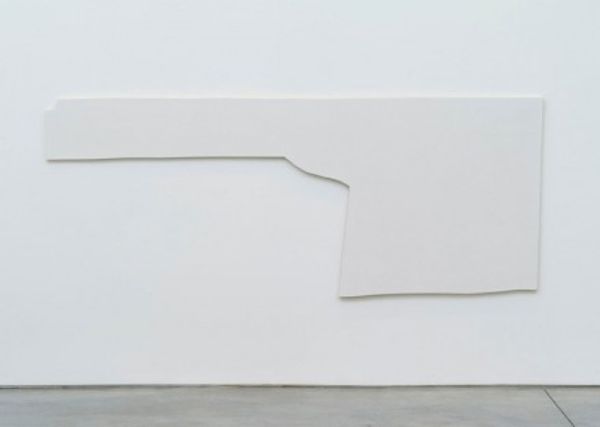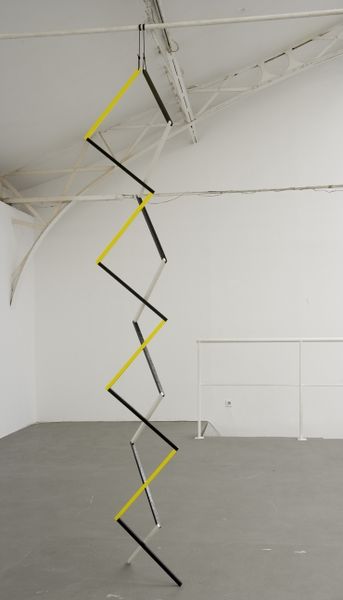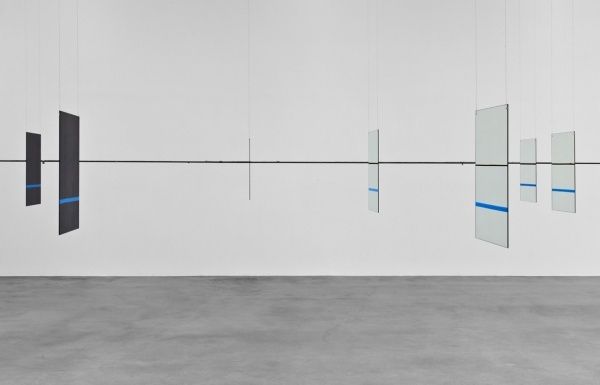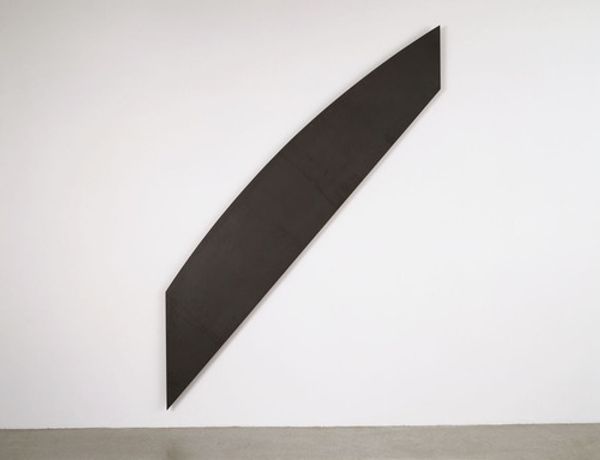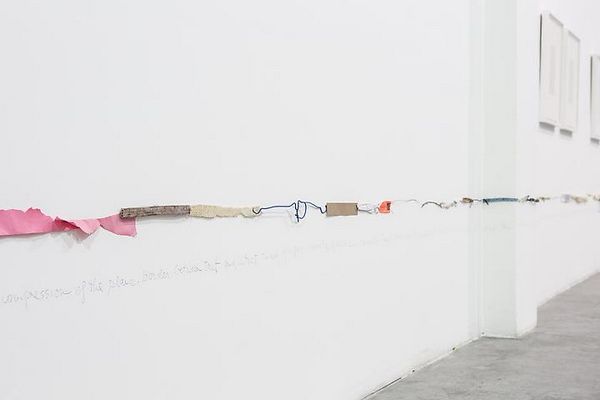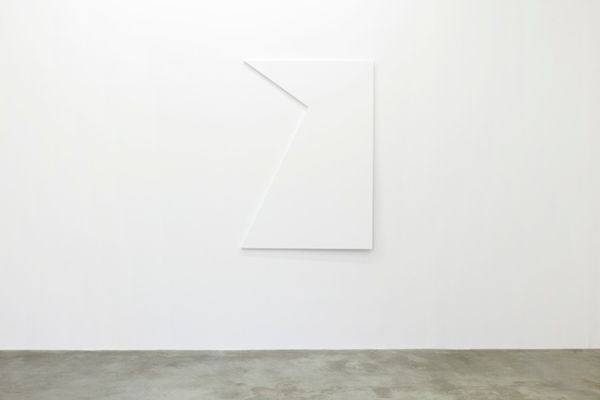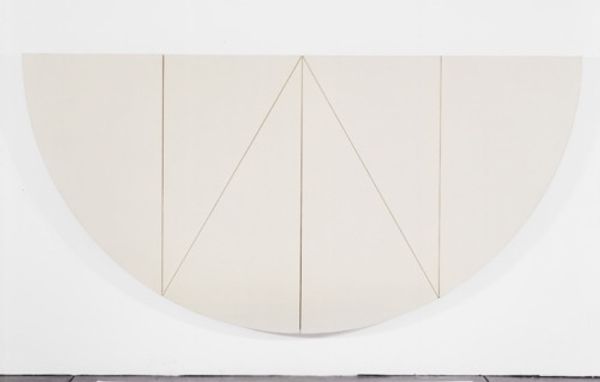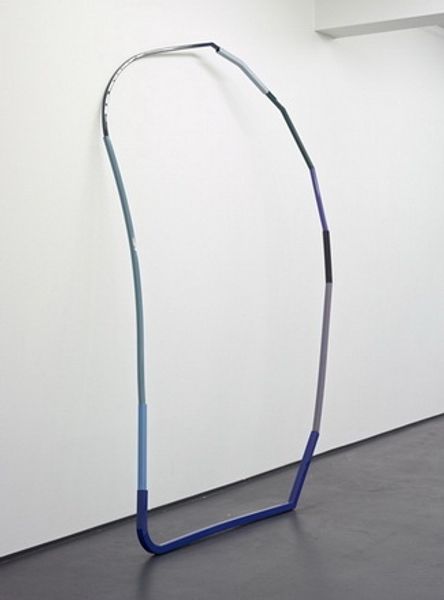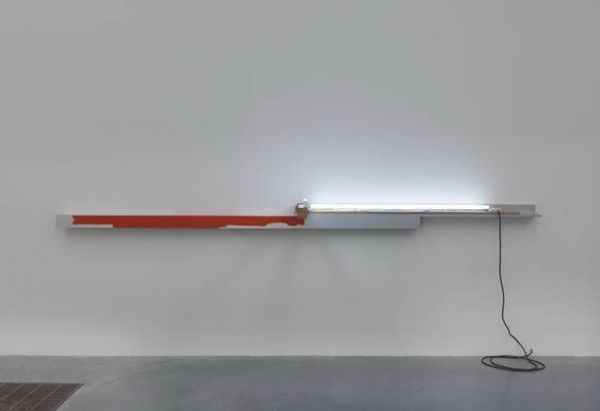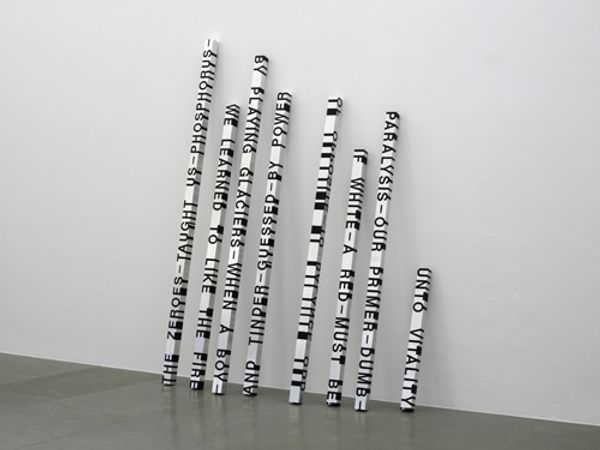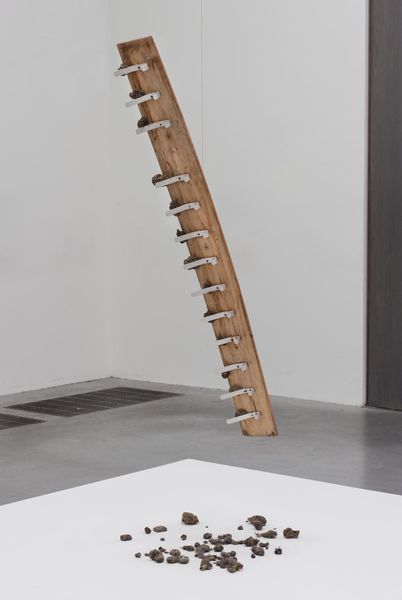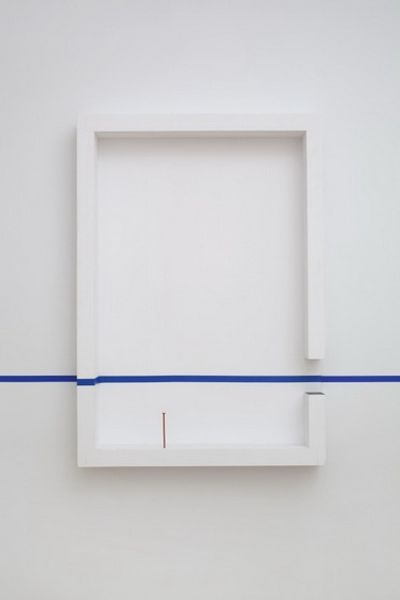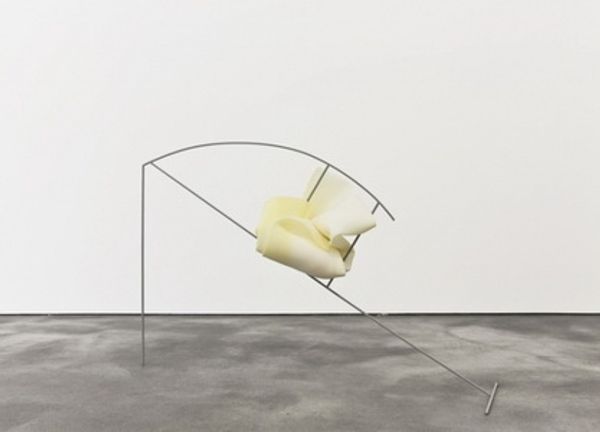
sculpture
#
rhythmical white colour
#
kinetic-art
#
monochromatic
#
abstract shape
#
natural shape and form
#
monochromatic tone
#
sculpture
#
constructivism
#
sculptural image
#
abstract form
#
geometric
#
sculpture
#
white focal point
#
abstraction
#
line
#
abstract composition
Copyright: Alexander Calder,Fair Use
Alexander Calder made this mobile out of painted metal and wire sometime in the mid-20th century. Calder and other artists were interested in using simple materials to explore the relationship between objects and space. These hanging sculptures became associated with ideas of progress and new technologies in the post-war period in the United States. The clean lines and geometric shapes reflect the influence of industrial design, which was transforming American factories and homes at the time. Museums and galleries played a crucial role in promoting this type of abstract art, shaping public taste and influencing the art market. Understanding this artwork requires us to research the social history of abstract art, looking at the exhibition catalogs, critics' reviews, and collectors' preferences that helped establish its value. By analyzing the cultural context, we can better appreciate how Calder's mobiles reflect the aspirations and anxieties of a rapidly changing society.
Comments
No comments
Be the first to comment and join the conversation on the ultimate creative platform.
